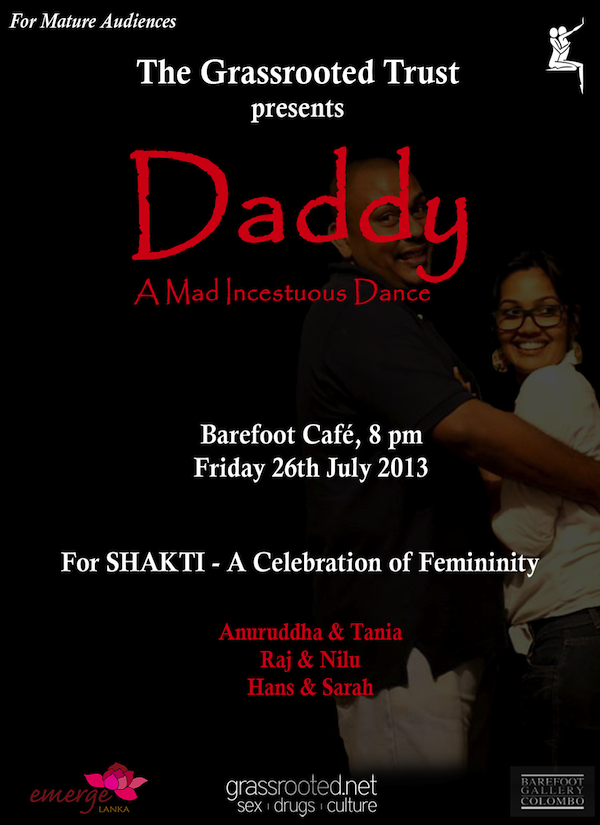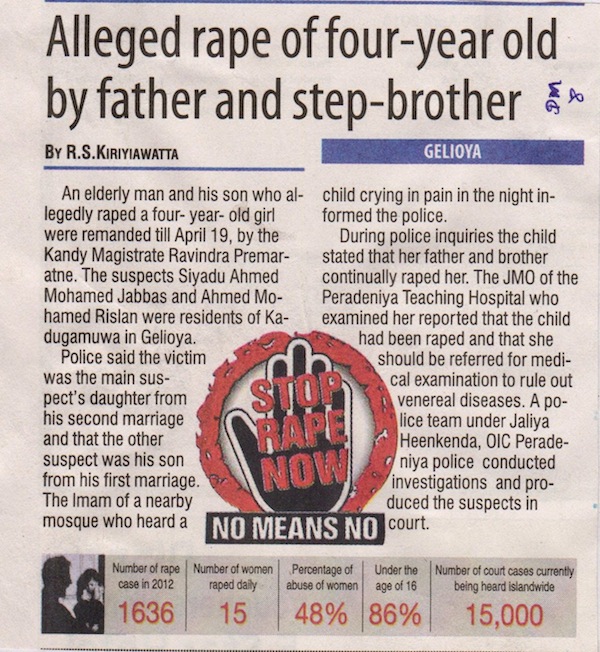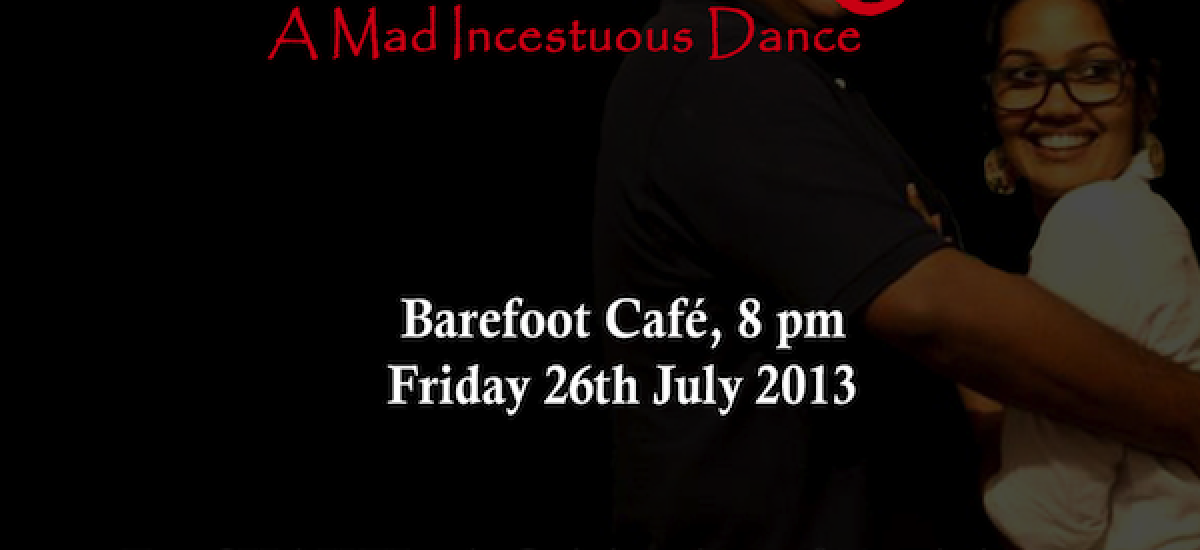
Incest in this country has probably been always spoken about, albeit in hushed, almost reverent whispers. Curiosity has probably always led to incestuous acts among children, but then, is that something we can say out loud? It is universally accepted that Adults who engage in incestuous acts are despicable. Filthy. Sick. There is a joke about a Hillbilly family that suggests however, that we like to nervously giggle at the fact that it might be far more common than we allow ourselves to imagine. Far more common than what we admit to, is what we know though, we’re just too afraid to say it out loud and hear the truth. So, the joke:
A Hillbilly son comes home and sits down with his father on their wooden porch, plucks at a banjo, and tells his aging dad that he can’t marry the girl next door because neither her father or brothers had copulated with her. To which the Hillbilly dad replies, “That’s a damn fine decision son, if she ain’t good enough for her family, she ain’t good enough for ours.”
Funny?
What is funny is that report after report of incestuous fathers and adult older brothers appear in our newspapers. And we placate ourselves by believing that this person, this perpetrator of incest, is as far removed for me and mine as can be. ‘Alleged’ becomes a popular word. Also, if it did happen, it must be an isolated incident. And you’re right – incest happens so often as isolated incidents. The isolation of a woman, a girl, who has no escape from her situation, because who would believe her, who would want to believe her. As for the little girls and boys, the ones who are four, what can they say to make you believe they’ve been violated?

Courtesy Daily Mirror
In 2009, the Sunday Leader did a piece on incest – ” In 254 out of the 1,126 cases of abuse for which the Ministry has detailed information, the abuser was a relative of the victim. In 89 of the cases, the abuser was the victim’s father, in 14 it was the victim’s stepfather, and in five cases it was the victim’s grandfather. The other 146 cases of incest were committed by members of the victim’s extended family. Rapes constituted most of the cases, followed by sexual abuse, cruelty, and kidnapping. 206 of the victims were under 10 years old and 878 were between 10 and 16.”
Have the numbers changed you reckon? Would you like to find out? Or, are these numbers just vindication of the fact that these are all isolated incidents? In 2010, when we were doing a project up in Vavuniya, with Sarvodaya and UNFPA, on training young people to be peer leaders on sexual and reproductive health and rights, we encountered multiple stories of incest. Fathers had either offered the excuse, or the excuse was made on their behalf, that their wives were abroad working as housemaids. The numerous frustrations of being left behind had led to incest. Yes, their wives had a much better life, probably having better sex than they ever did before.
“Migration can also open the door for new vulnerabilities as a result of precarious employment and legal status, exclusion and isolation. It can take women down roads of violence and abuse (whether verbal, physical or sexual), entrapping them in sex-segregated jobs with difficult working conditions (long hours and low wages). Migrant women might also have to deal with broken marriages and scattered families, poverty and illness upon return. Migration can result in ‘success stories’ but it can also lead to fragmented and even shattered lives (Jolly & Reeves 2005)”
“Sri Lankan Housemaids in Lebanon: A Case of ‘Symbolic Violence’ and ‘Everyday Forms of Resistance’ by Nayla Moukarbel is an engaging read on what are some surprising, yet almost always painful experiences of our Lankan women. Women who have left their homes to be tended to by their husbands and daughters; girls that take on this responsibility, sometimes at the cost of their own education, and, if unlucky, at the cost of the thrill one feels during their first sexual encounters. If unlucky… fated are they instead? Could being raped by her father really be her fate, something that some higher power intended? Is this God testing her faith? Why would he or she do that? Yet, mustn’t this girl retain the hope of an afterlife in heaven, a reward for her temporal suffering?
In Vavuniya we also heard of a grandfather that inserted shaving blades into his granddaughter’s vagina, in a village not too far from Vavuniya town. They said the girl was around eight. Hearsay, of course. We never went looking for the newspaper report. We chose to believe the stories. The time that we spent in Vavuniya with those young people, and the adults, whom we had to meet to inform of what exactly we were going to train their young people on, meant that we heard echo after echo of incest. The team we trained in Anuradhapura on the same project was absolutely no different. The housemaid excuse emerged time and time again here too.
Sarvodaya also run homes, where it is not uncommon for some young girls to be carrying their father’s child. Her brother and her son. Anuruddha’s line in the play about the right to eat from the “Jambu” tree he had planted, was an actual comment by a drunk father outside the home protecting his daughter from him, as ordered by the court. Speak to the administrators of these homes, and you will understand how isolated these incidents really are…
In 2012 we did peer education training for YWCA. A project aptly called, Young Women Lead Change. UNFPA was our partner again. Everyone hears the stories. Everyone knows. The YWCA girls, from Baddegama, Batticoloa, Colombo, Galle, Jaffna, Kurunegala, Mannar, Negombo, and Trincomalee, all echoed incest.
And then, we have Emerge Global. They work with victims and survivors of incest. They know how isolated these incidents are too.
When will the rest of us accept the cliche that change begins with me? Don’t focus on the cliche. Start thinking. Start looking around you. Stop ignoring the signs.
Molest is such an ugly word. Much uglier than abuse. But strangely, molest also carries with the connotation of less harm. Molest is not rape, for many. The Oxford Dictionary definition is suitably vague.
1 assault or abuse (a person, especially a woman or child) sexually:he was charged with molesting and taking obscene photographs of a ten-year-old boy
2 dated pester or harass (someone) in an aggressive or persistent manner:the crowd were shouting abuse and molesting the two police officers
Perhaps we need to rediscover Molest. Molester sounds so much like Monster, that we shouldn’t give up on the word. Let’s reclaim it to be as reviling as it sounds.
But then, perhaps we’re being too judgmental. Perhaps we need to think about therapy, psychoanalysis even, to identify the clumpy roots of the problem. Perhaps we need to forgive the childhood experiences that have perpetuated this cycle of molestation. Perhaps we must be patient, without being stupid, forgiving without forgetting to protect. Perhaps, perhaps, perhaps.
Perhaps then, we must remember that when we’re looking for the despicable you, we should not forget to look for the despicable me. He maybe closer that you allow yourself to imagine. He maybe closer than you allow yourself to admit. You know though. You always know.

